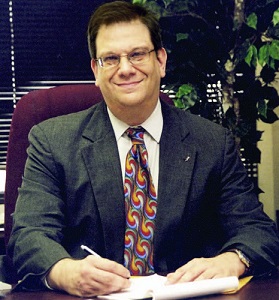October 2017, Vol. 244, No. 10
Editor's Notebook
Hurricane Harvey Rocks Houston

“The worst thing about this is that you know people are going to die.”
Mid-afternoon on Aug. 25 and I was talking to our managing editor Mike Reed as we prepared to go home. Hurricane Harvey was approaching Houston. Everyone’s nerves were on edge.
We knew we were going to get hit and hit hard, though being in a metro area of 10,000 square miles, you’re never sure where a storm will cause the most havoc. But the warnings were coming fast and furious from local officials and weather forecasters who did everything but tell us to flee.
I’m writing this three weeks later. I look onto heavily traveled Richmond Avenue, shaking my head at this surreal experience. It’s business as usual here while a few miles away many thousands are still homeless while even more, including my co-workers, are cleaning their homes, salvaging what they can. Harvey spread its destruction evenly throughout the region, not caring whether you were rich or poor. If you were unfortunate to live in or near a flood plain, which is much of our over-developed land, then he was coming after you and yours.
Random thoughts drift through my mind. Our neighborhood was spared damage, thanks largely to an effective drainage ditch, but do we want to spend our lives where flooding is a common occurrence? The Tax Day flood in 2016; the Memorial Day flood in 2015; Hurricane Ike in 2008; Hurricane Rita in 2005; Tropical Storm Allison in 2001; the 1994 “hell and high water” flood that caused enormous damage especially to pipelines; Hurricane Alicia barreled through Houston in 1983, but I wasn’t here yet. In fact, almost yearly a deluge causes life-threatening conditions for drivers and those living in low-lying areas.
I recall Hurricane Gilbert in September 1988, forecast as the worst storm ever, which seemed destined to hit Houston. I worked at a now-defunct newspaper housed in an impenetrable building. They told us we could bring our families in but they would have to work like the rest of us in return for food and shelter. Don’t worry about your cars: they’ll be flooded in the parking lot, and don’t ask where our new owner will be. Gilbert missed us. I began looking for another career. I don’t make this stuff up.
Harvey hit home in personal ways: a former reporter and editor I knew drowned; so did a heroic police officer driving into a wall of water on a road my wife takes to work; the spa manager at the Omni Hotel where we hold our Pipeline Opportunities Conference was found dead in an elevator after trying to help evacuate guests. They are among the 75 victims.
Then there are the numbers: besides that record 51 inches of rain, equal to 11 trillion gallons of water, that actually lowered Houston by 2 centimeters, the most striking to me was the 409,000 new housing units built in Harris County since 2000 to accommodate our 40% increase in population. We also now have over 35,000 miles of roads in our county, which, along with the housing influx, wiped out much of our drainage capacity to the extent that engineers had to deliberately flood thousands of homes to relieve the pressure on our two inadequate dams. That area included my last two apartments.
Such is the price of progress. In the past 15 years I’ve witnessed a building boom unlike anything I could have imagined as developers literally have carte blanche to build as much as they want wherever they want. Harvey may change that, especially if businesses and people think twice about moving here.
In the 1990s, civil engineers warned that we were living on borrowed time unless plans were made to improve drainage. It would have cost $400 million but was doable. No one seemed to care. Now they say it will cost $1 billion. Maybe that will be the primary issue we focus on here instead of silly social topics like the “bathroom bill.”
I don’t know. I’m out of space and out of words.





Comments